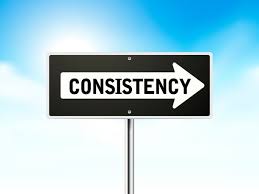The quality of training you provide to your new sales hires, will shape their future at your company and directly affect your top line results. Well-trained sales teams are more efficient, more effective and drive the numbers that you need to succeed. Not all training programs are created equal and the ability to adapt and customize yours to be specific to your industry and culture is a key differentiator and potentially a game changer.
In our vast experience working with the best and brightest we have boiled it down to 4 key components of a successful sales training program, that will help maximize the return on your investment.
1. FUNDAMENTAL SELLING SKILLS
Have you set the foundation? This is where you will build from and even for the most experienced sales reps, training on the fundamentals offers a chance to check in with their basic skills. The following are skills that every sales rep needs in their toolkit to succeed.
- Preparation and planning
- Presenting with confidence
- Effective communications
- Problem solving/Handling objections
- Closing the deal
- Flawless implementation
Establishing these fundamental skills across the entire customer facing organization creates a consistent experience for your customers and your sales management team to support and develop. Our experience has proven the hypothesis that the majority of sales success can be found in the mastery of these fundamental skills and the earlier they are built into the reflexes of your sales organization the better.
2. BUILDING CUSTOMER RELATIONSHIPS
Real connection with your customers is one of the most important traits any sales person can build. And so – any solid sales training program must include a focus on understanding all facets of the customer experience. The most successful sales people empathize with what customers are feeling at all stages of the sales process, from initial contact until a deal is closed.
Simply reviewing customer plans or business reviews won’t build real connection with anyone. Sure – it will give them all of the data they need – but it won’t help them nurture and grow a relationship. Have new sales people role-play from the perspective of a customer so that they can put themselves in those shoes. Introduce your new hires to your existing customers’ perspectives by showing them a video, or even setting up a meeting between them and a valued customer.
3. A REPEATABLE SALES PROCESS
The importance of a well-established sales process cannot be overstated. Teaching new hires, and reminding your veterans, about your unique sales processes is critical. If a new hire has any previous sales experience, they’re likely used to different processes. Make sure everyone leaves training with a solid understanding of what your processes look like, including:
- How leads are generated and shared
- Defining and documenting different stages of the sales funnel
- Understanding the customers’ processes
- Building and getting approval on a proposal
- What happens once the deal is closed
- Delivering a great customer experience once the deal is signed
To teach your methods effectively, it can be helpful to review actual case studies in detail as you walk through each of your relevant processes.
4. SALES COACHING
More than ever before sales leaders and managers are responsible for talent development today. We jump through hoops to assess, hire and onboard the right people and then we set them up for performance issues by aligning them with managers who cannot or will not develop them (perhaps due to a capability or intent gap). This is made especially costly in a world where employees are increasingly willing to move to another job or organization if they don’t like what they are experiencing. Every great sales capability development strategy that we at Optimé have been involved in has included a focus on developing the talent of the sales management team. It is that team of leaders and managers who will be charged with enabling an organization to learn and grow every day.
Developing coaching and management skills are a priority of all great sales organizations. When you set out to develop your sales capability development program do not overlook your management team, they are the ones who will be carrying the flag forward.
Please check out our Sales Training Programs to learn more, and how they can drive your company’s sales goals. Until next time…Good Luck and Good Selling!



